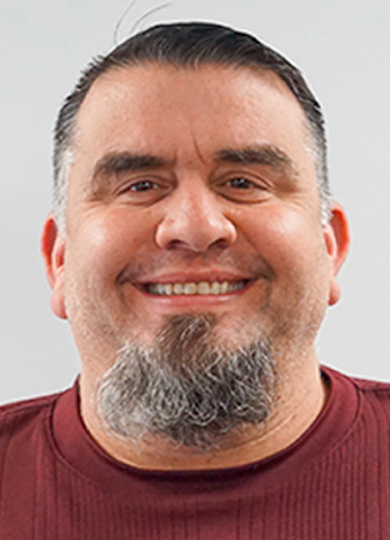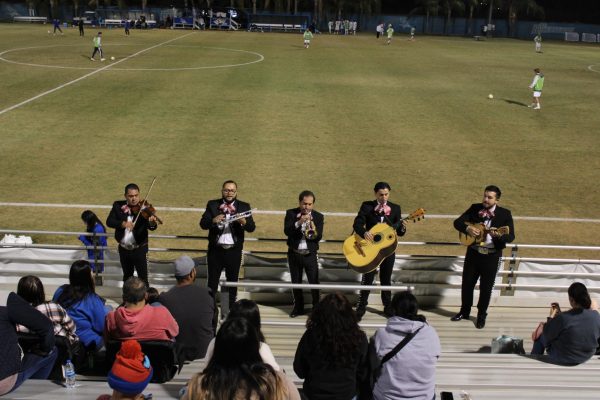MAGEC hosts open sex talk
From left: Karina Miranda, Daisy P., and Yuridiana Pantoja demonstrated a dental dam during the Let’s Talk About Sex event on April 10 inside CSU Bakersfield’s Multi-Cultural Alliance and Gender Equity Resource Center.
May 3, 2019
In the remote west end of the CSU Bakersfield campus, at the Multi-Cultural Alliance and Gender Equity Resource Center (MAGEC), a group of students converge to talk about sex. The room was packed to capacity with students crowding together. Some of which sat on the floor.
April is sexual assault awareness month. While that was one of the topics of the night’s forum, it was just one of many. The discussion, titled “Let’s Talk About Sex” was led by CSUB campus advocate and education coordinator, Vanessa Corona.
Corona, who specializes in sexual misconduct on campus, opened the forum with the message that this is a “safe place,” encouraging everyone to be comfortable saying what they feel and asking questions.
The overall message was that of being “sex positive,” as Corona phrased it, rather than scare tactics. A table at one edge of the room was covered in free contraceptives and gift bags that attendees helped themselves to.
One of the first subjects of the evening was the dangers of sexually transmitted disease and sexually transmitted infection. Corona gave a very real open and honest speech about STD’s and STI’s. “Self-love is the safest kind of relationship,” Corona said. “However I don’t like teaching abstinence, it’s absurd, we are all human and have needs,” she said.
Kern County is ranked third in the state for highest chlamydia rate, 38 percent higher than the state average, and fourth in the state for gonorrhea, 33 percent higher than the state average. One resource for anyone to use was the Bakersfield’s AIDS Project, that gives out free contraceptives.
Delila Solis, a senior sociology major, and a member of CSUB’s Club Gen, offered to go to Bakersfield’s AIDS Project with or for anyone who was too embarrassed to go alone in order to get contraceptives and other safe sex protection.
Free STD and STI testing were available at the Student Health Center, as well as pregnancy testing. Other services include emergency contraceptives, otherwise known as Plan-B, up to six times per year.
Throughout the night, Corona fielded many questions. Often the most brazen received nods of approval, inquisitive attention, or knowing laughter, yet never open judgment, by those in attendance.
Masturbation, oral sex, anal sex, sex toys, and fetishes were just a few of the topics that were brought up at the forum, some topics more brazen than the next. Continuously through the night, the “sex positive attitude” was reinforced.
Many of the topics that are covered at the beginning of each school year in Title IX training (Sexual harassment training) was also discussed. The difference being the Title IX training, and this is that this wasn’t a scripted, educational video designed by educators, intent on satisfying a compliance requirement.
The open and honest format allowed for a real talk about safe and healthy intimate relationships, and what the difference is when they are not healthy. Healthy relationships and sexual encounters were another part of the discussion. Once again, much like the Title IX training, Corona delved into the warning signs of an abusive relationship, but in a manner that was appropriate for her audience.
Jessica Mendoza, 20, a freshman, heard about the event in an email, and it was what she had expected.
“It’s not so awkward in this setting,” she said.
One problem with the forum, that was brought up by many in attendance as well as Corona, was the lack of male participation. Towards the end of the event, Corona expressed her intent to have more forums of this nature. She was even considerate enough to ask the attendants how they would feel about doing the same thing in the Dezember Reading Room, in an effort to attract more participation. Their reaction was enthusiastic and positive.








